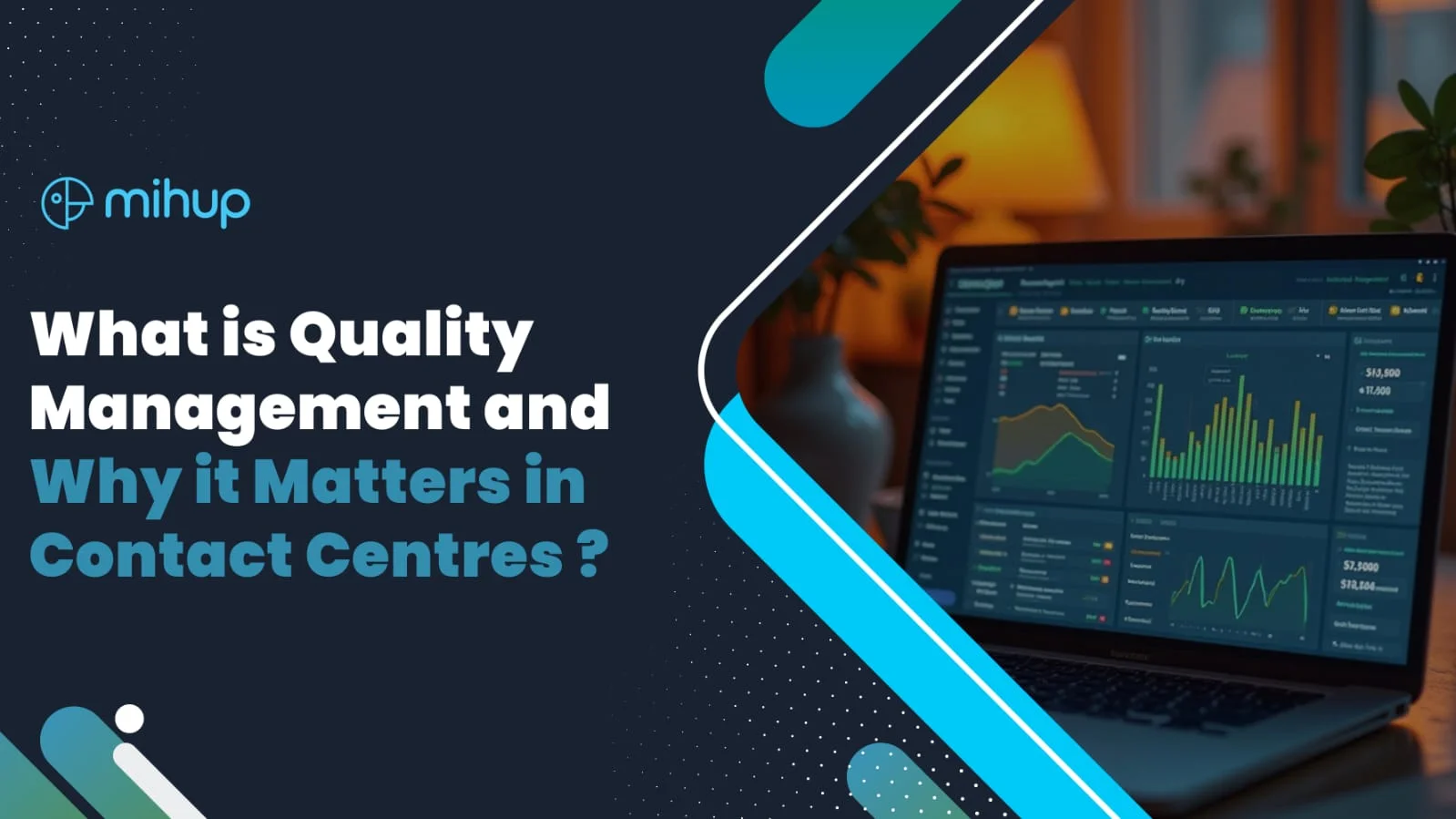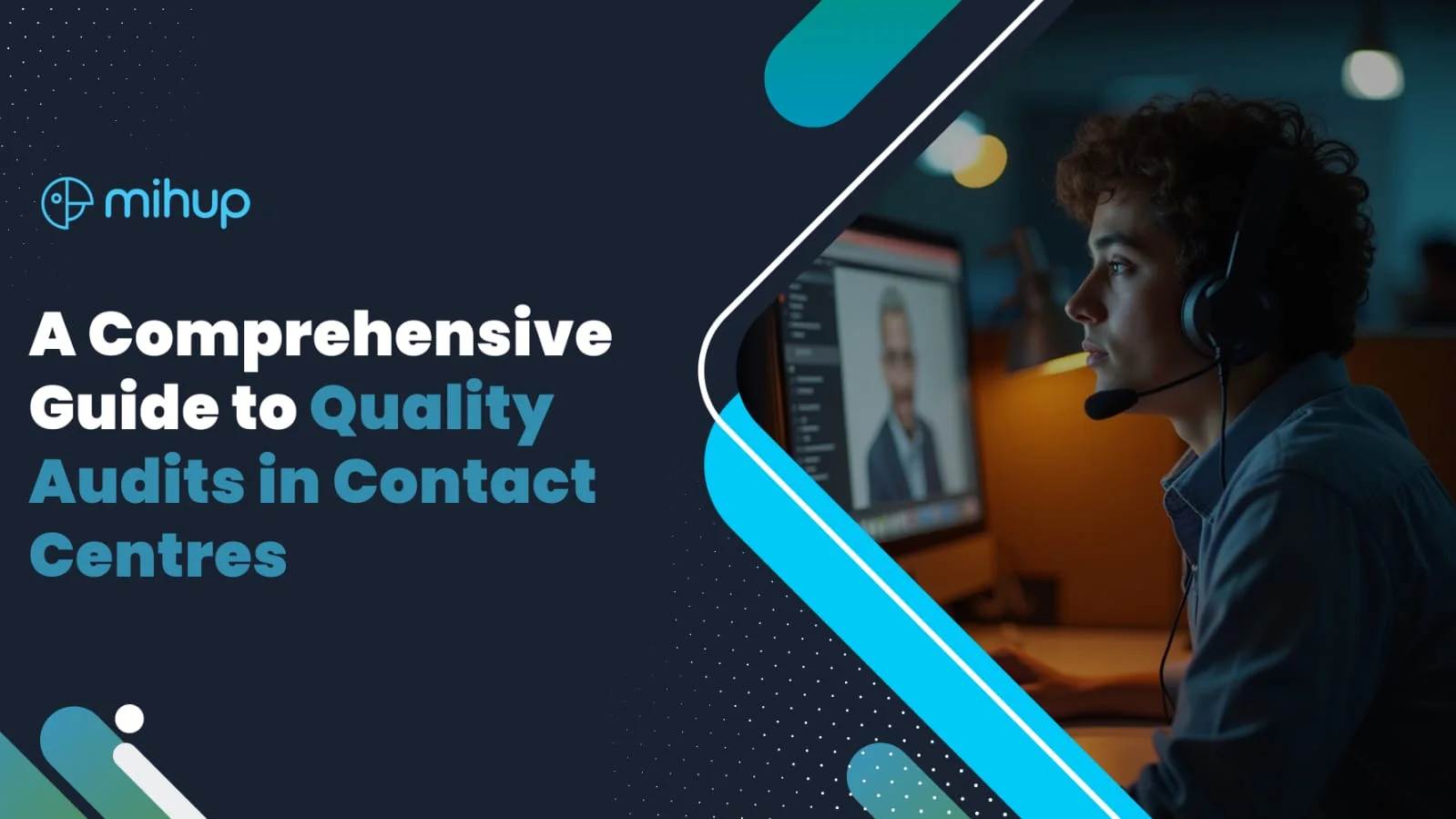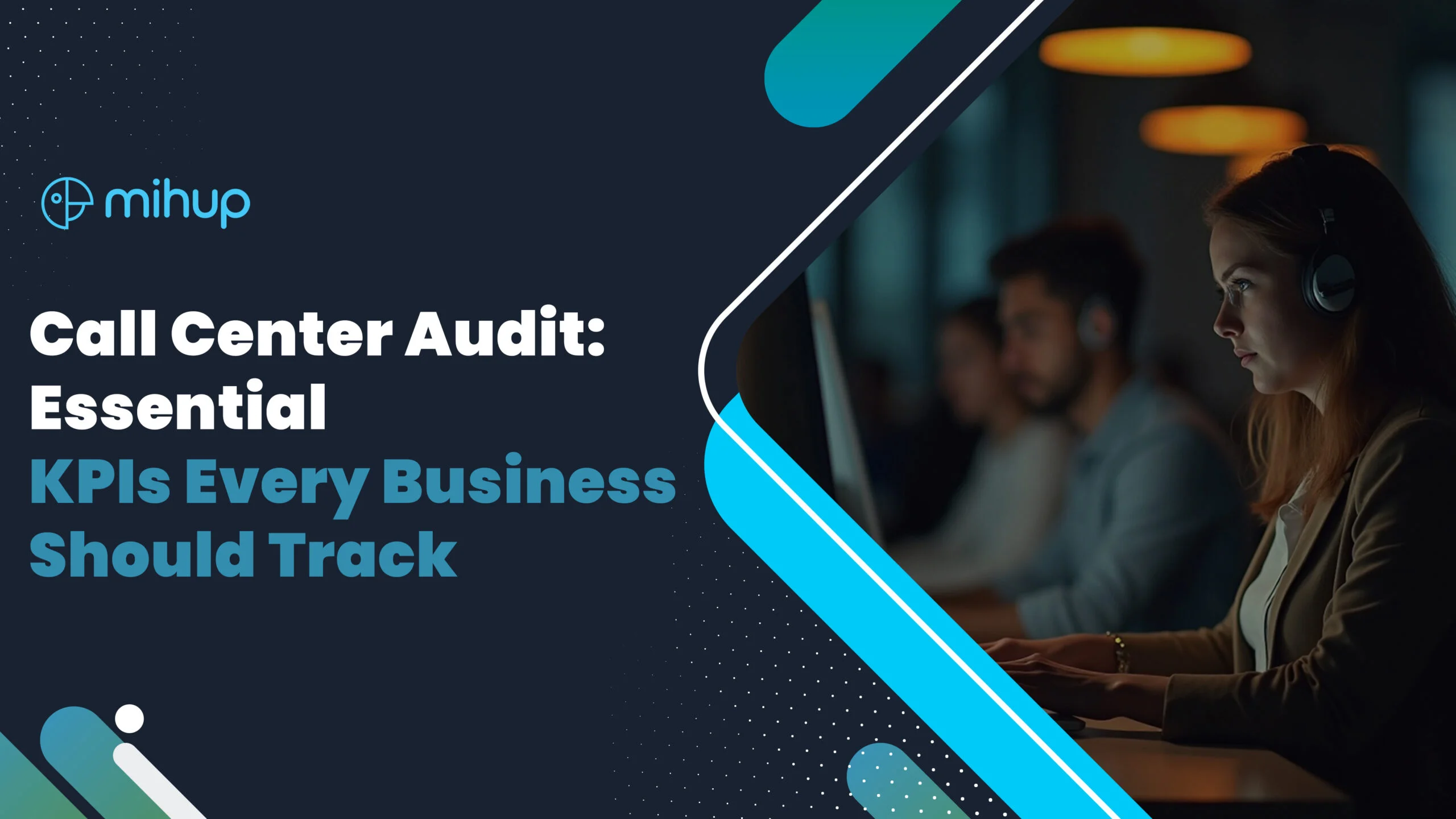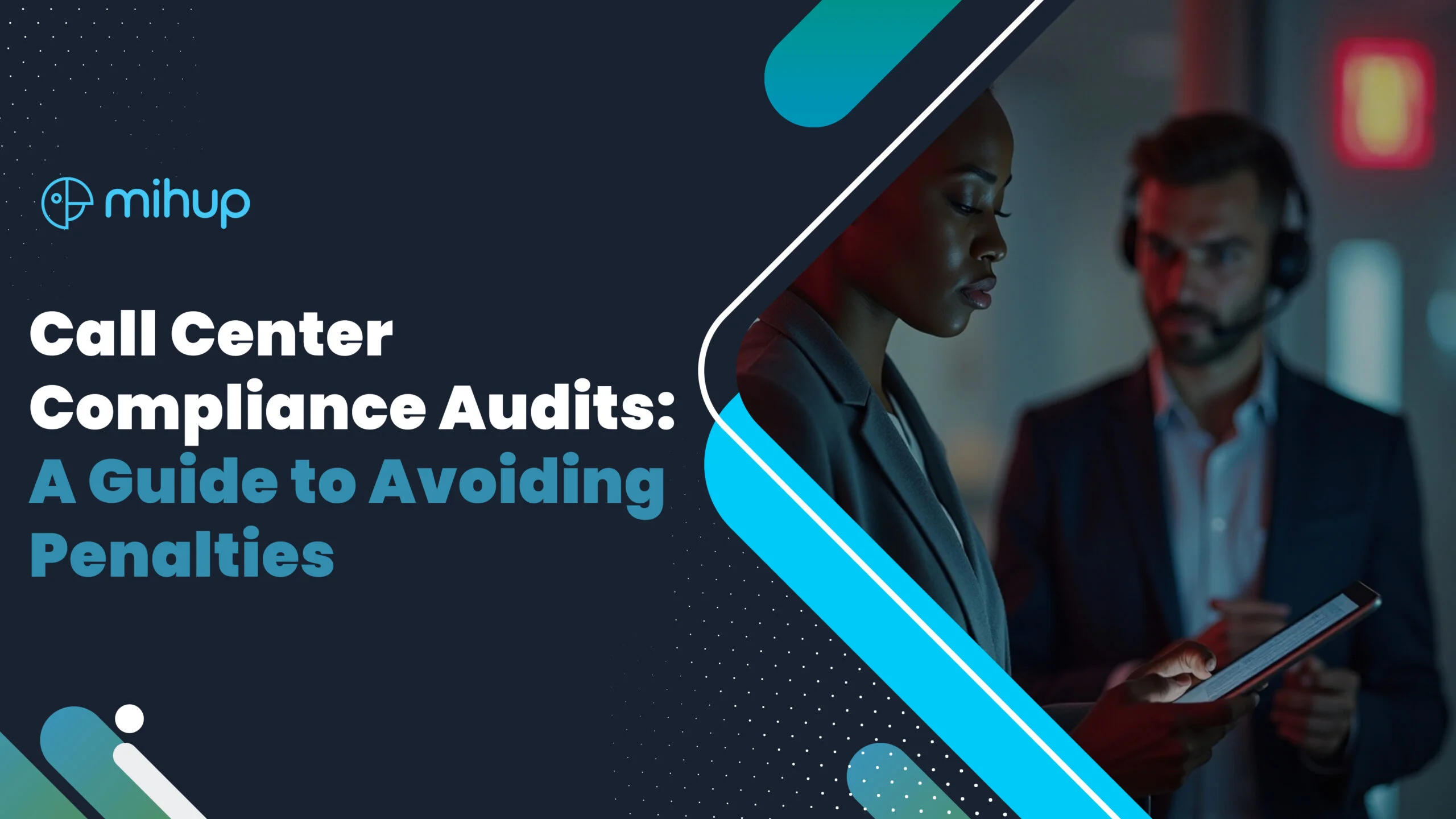Your phone rings. You glance at the screen. You decide to answer this time. It’s someone trying to sell you something you didn’t expect. Maybe they sound pushy, just reading a script. If you don’t want it, you might hang up fast. Even if you are a little interested, that pushy feeling can be annoying. It might make you decide to buy from a different company instead.
This common feeling shows why it’s super important to be good at making calls from your business to other people. Doing outbound calls the right way matters a lot for success. It’s not just about calling a list. It’s about making a good connection and showing real value quickly.
In this blog, we will take a deeper look at what an outbound call is. We will see why it’s different from calls that people make to your business. And we will share actionable ways to make your outgoing calls truly effective. We want these calls to add real value and help your business grow.
What Exactly is an Outbound Call?
An outbound call is a phone call started by an agent from your company to someone outside your company. This person could be a potential customer your sales team wants to reach (a “prospect”). Or it could be someone who is already a customer, maybe getting a call from customer service or for a sales follow-up. These calls start with your company reaching out.
People who make these calls are usually part of sales teams or customer service teams. A cold call is a specific type of outbound call. This is when a sales agent calls a prospect they have never talked to before. The agent doesn’t know if this person is interested. Cold calls can be tough. But if you plan carefully and use smart methods, even cold calls can open new doors. They help you find new chances to do business.
Outbound vs. Inbound Calls: Why the Approach Must Differ
It’s very important to know how outbound and inbound calls are different. This tells you how your agents need to think, act, and talk.
- Inbound Calls: The customer or person calls your business. They start the conversation. They call because they have a clear need, question, or problem they want help with now. They are already connected to your company in some way. They expect someone to answer and help them. The person calling usually has a reason linked to buying, getting support, or managing their account.
- Outbound Calls: Your business calls the person. This person is very likely not waiting for your call. They could be busy with other things. They might only have a few seconds to talk. They might feel careful about talking to someone selling something. They might not know anything about your company yet.
This big difference means you need totally different plans for how your agents handle each type of call.
For inbound calls, the main goal is often to listen well and quickly help the person with the reason they called. You solve their problem or help them buy what they already wanted. It’s about service and closing existing interest.
For outbound calls, your plan has to be different from the start. You must quickly get their attention in a positive way. You need to give them a strong reason why listening to your call is worth their time, even though they didn’t expect it. You need to be ready to handle surprise, questions, or people saying they are busy. It’s about creating interest and guiding an unexpected talk toward a positive next step. Agents need to be more proactive and skilled at handling resistance politely.
Steps to Make Your Outbound Calls Effective and Valuable
To move past being seen as a pushy caller, you need a smart plan for your outbound calls. Being great at outbound calls takes more than just making a list and dialing. It needs good planning, the right tools, agents who talk well, and always looking for ways to improve.
Here are actionable steps to help you handle outbound calls the right way, adding value for both you and the person you call:
- Build Strong Agent Skills and Knowledge.
How your agent sounds and what they say in the first few seconds makes a big first impression. The person you call will quickly decide if they want to keep talking. Good training for your agents is super important for success.
Make sure your agents are very well-trained. They need to know everything important about your products and services. They also need to be great at talking with people. This includes key skills like:
- Careful Listening: Hearing not just the words, but understanding what the person really needs or is worried about.
- Being Clear and Friendly: Talking in a way that is easy to understand and makes the person feel comfortable.
- Understanding Feelings: Sensing if the person sounds busy, happy, or maybe a little annoyed, and knowing how to respond kindly.
Good training helps agents feel ready for anything the call might bring. It helps them connect with the person on the other side.
- Use Scripts as Guides, Not Rules: Call scripts are helpful maps. They make sure your agents remember all the key things to say. They can also give good ideas for how to answer common questions or deal with objections (reasons someone gives for not being interested). But training must teach agents how to use the script like a guide. They should not read it word-for-word. They need to sound natural, like they are having a real conversation, not just reciting lines.
- Plan for Different Talk Paths (Call Flows): Think about the different ways a call could go. What if the person says “I’m not interested”? What if they ask a technical question? What if they want to buy right away? Drawing out maps for these different paths helps agents know what to say next in any situation. It helps them keep the talk moving smoothly and feel more sure of themselves.
- Practice Calls and Learn: Agents should always work on getting better. Role-playing calls in training helps them practice talking and handling different situations. Even agents who are doing very well can learn new skills to talk to different kinds of customers or handle more complex talks.
- Listen to Recordings for Real Feedback: Recording calls and listening back is a goldmine for learning. Listen to calls that led to success. Listen to calls that didn’t go well. Why did the person hang up fast? What specific words did the agent use that worked well? Looking at these real calls helps you see exactly what happens. This helps you give agents specific, helpful feedback on how to improve based on real talks.
- Use the Right Tools and Technology.
Making effective outbound calls is much easier when you use the right tools. Special call center software helps agents manage who they need to call. It makes the process faster and more organized. This means agents spend less time just looking up numbers or dialing. They have more time to actually talk to people.
Look for call software that can:
- Keep Track of Every Call: Log who was called, when, and what happened.
- Help Agents Call Smartly: Show agents the best people to call next (prioritize).
- Make Calling Easy: Let agents call right from their computer screen, often using internet technology (VoIP), so they don’t need a physical phone.
- Connect to Customer Info (CRM): Link with your customer list software (CRM). This means agents can see important details about the person before the call even starts. They can see their history with your company. This helps them have a more personal and ready talk.
- Do Small Jobs Automatically: Write down notes about the call or update the customer’s file by itself. This saves agents time after the call ends, so they can make more calls.
- Manage Large Call Lists: Some software can even dial numbers for agents, so they only connect when someone answers (like with predictive dialers, though these need careful use to avoid dropped calls).
- Execute Each Call with Care and Purpose.
Even with great training and tools, the moment you connect with someone is key. How you handle the start of the call is very important.
Here are simple, strong tips for when you are actually talking:
- Respect Their Time – Call Wisely: Try to call at times that make sense for the person you are calling. Avoid calling too early or too late. Don’t call during times when people are likely eating dinner or busy with family. Thinking about their day shows respect. You can even start by saying, “Is this a bad time?” or “Do you have a quick minute?”.
- Sound Real, Not Like a Robot: Do not just read your script straight through. Use your own voice. Talk like you are having a normal chat with someone. Be friendly and warm. Show that you know your stuff in a natural way. Sounding real helps the person trust you more quickly.
- Quickly Show Why You Called: You only have a few seconds to get their attention. Get to the main point fast, but do it in a way that shows how it might help them. What problem can you solve? What value can you add for them? Focus on that, not just listing facts about your product.
- Be Confident, Never Pushy: Believe in the value of what you offer. Speak clearly and sound sure of yourself. This builds trust. But if the person says they are busy, not interested, or it’s a bad time, listen to them. Don’t try to force them to keep talking. Being pushy feels bad for them and makes your company look bad. It’s better to end the call kindly and maybe ask if you can try again later. This saves your time and leaves a better feeling.
- Analyze Results and Keep Getting Better.
Looking at the results of your calls is super important. It helps you understand what is working well and what needs to change. You need to check numbers and information from your calls regularly. This helps you improve over time.
Track key numbers (KPIs) to understand your performance:
- Connection Rate: How often does your call actually get connected to a live person who answers? (High rate is good).
- Average Handle Time (AHT): How long do your calls usually last from start to finish? (Helps see if calls are too long or too short).
- Conversion Rate: How many calls lead to the goal you wanted? (Like setting a meeting, getting a sign-up, or making a sale). This is often the most important number.
- Conversion Rate by Source: Which lists of people (from where?) lead to the most sales?
- Conversion Rate by Agent: Which agents are best at turning calls into results? What can others learn from them?
- Objection Handling Success Rate: How often does an agent successfully answer a person’s question or concern and keep the conversation going positively? (Helps see if agents need more training on answering common “no” reasons).
- Talk Time vs. Listen Time: How much time does the agent spend talking versus listening? (Good outbound calls often have more listening, showing the agent is understanding the prospect).
- First Call Close Rate: How often does a call result in a sale or key action on the very first call?
- Follow-up Meeting Rate: How many calls lead to the person agreeing to a next step, like a meeting?
Looking closely at these numbers helps you understand what kinds of calls work and what doesn’t. This data helps you decide what new ways of talking you should try. It helps you make smarter choices about who to call and how to train your team. It’s about using data to constantly make your outbound calls better.
Outbound Calling: A Smart Way to Drive Business Growth
When you make outbound calls in a smart way, with good planning, well-trained agents, the right tools, and by checking your results, they can help your business grow a lot. It’s a proactive way to find new customers. It helps you build real connections. It lets you learn more about what people need directly. Being great at outbound calls means seeing each call as a chance to connect, offer something helpful, and add value, not just a quick try to sell.
Improve Outbound with AI
Mihup uses AI to improve contact center outbound calls and results. It analyzes every call you make, not just a sample, using Mihup Interaction Analytics (MIA). MIA employs new AI (LLM) to find deep insights into what works best for sales, how to get higher agreement rates, and how to improve the calling process. This analysis shows why calls succeed or fail.
Then, Mihup Agent Assist (MAA) uses these lessons learned from past calls to help agents during live calls. It provides real-time tips or information in the moment. This results in more prepared and confident agents, leading to better call outcomes and higher ROI. Mihup builds its own technology, making it robust and cost-effective.
Want to see exactly how Mihup’s AI can make your outbound calls and sales agents perform much better? Learn more at Mihup.ai.





